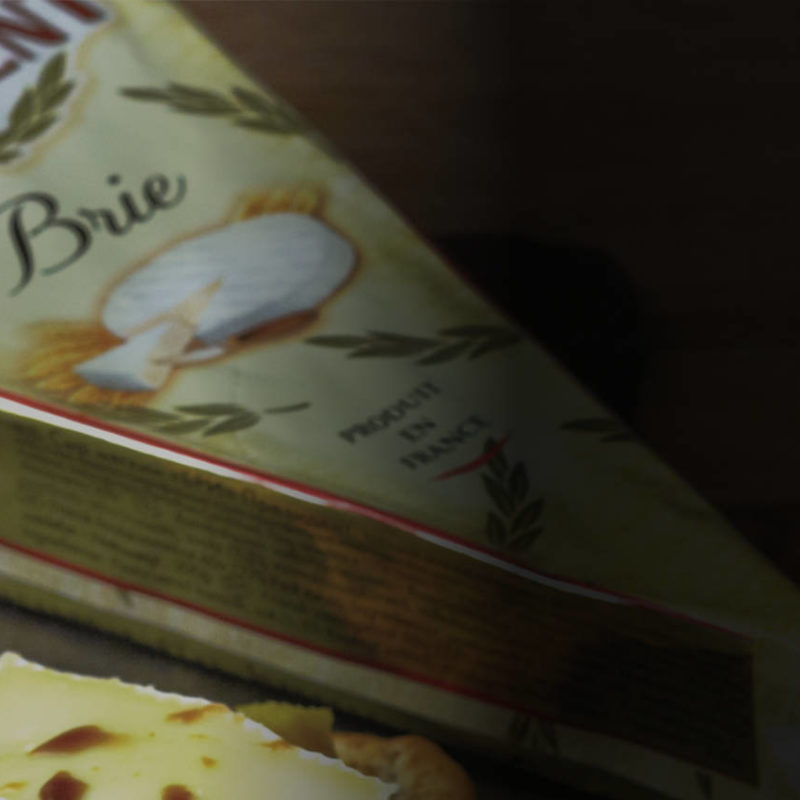Lactalis McLelland
As part of the Lactalis Group they became not only the UK’s second largest cheese producer and cheese merchant with an annual turnover of over £160 million, but a major part of the global Lactalis Group.
As part of the Lactalis Group they became not only the UK’s second largest cheese producer and cheese merchant with an annual turnover of over £160 million, but a major part of the global Lactalis Group.
Lactalis McLelland distributes not only the Seriously® and Galloway brands of cheddar but a range of premium branded speciality cheeses, dairy products, yoghurts, and deserts; including Président Brie, Emmental, butter and cream, Société, Lanquetot, Bridel, Salakis, ISTARA and Lou Pérac brands. The Lactalis Group employs some 29,000 people in 24 countries worldwide, with an annual production of around 600,000 tonnes of cheese sold throughout 140 countries.
A. McLelland & Sons Limited had originally selected the EFACS ERP System back in 1999. The demands from their customers, which included all of the UK’s major supermarket chains, began to strain the limits of their existing IT systems. Working with RAD Software Limited, Exel’s Scottish re-sales partner, McLelland implemented EFACS modules for Sales Order Processing, Order Tracking, Stock Control, Accounts and Logistics Planning. This provided the business integration and rapid EDI order throughput that the business required.
Backed by the Lactalis Group, the newly formed Lactalis McLelland reviewed their existing ERP systems. The options available to them were to go with the JBA System 21 that was already in use in other parts of the Lactalis Group; to extend the JD Edwards system that it had acquired in the 2006 purchase of Italian cheese maker Galbani; or to upgrade to EFACS E/8. The objective was to modernise their 7 year old NT4 platform and upgrade their ERP application to a modern, more easily deployed and maintained system. It was the proven track record and flexibility of EFACS which swung the decision in favour of EFACS E/8.

This was the maximum benefit, minimum risk solution on account of key EFACS functionality and the flexibility required for it to interface with the wide variety of systems already in use within the Lactalis Group; interfaces that John Breedon, Lactalis McLelland’s Group IT Manager, was able to configure using the EFACS ADAPT toolset.
Another huge benefit was EFACS’ functionality in terms of stock management using best before dates and also serialisation and batch control. As John explains, “All of our products have a specific shelf-life, which is quite long for hard cheeses but often quite short for the continental soft cheeses, butters, deserts and yogurts. Combine this with the fact that different customers have their own specific requirements for the proportion of shelf-life remaining on each product line once delivered, and it all becomes very complex. EFACS tells us exactly what to pick from which warehouse using a built-in set of rules, allowing us to fulfil any given customer’s order. It is absolutely spot on. It is no exaggeration to say that we simply could not have gone live without EFACS’ – Best Before Date – functionality, it was so important to our business.”
Trading in both Sterling and Euros, Lactalis McLelland receives EDI orders from all of the major supermarket chains, which represent 80% of their business, together with small orders from European distributors who may want just a few kilos of cheese. As John explains, “Compatibility with EDI was mission critical to our choice of system. EFACS interfaces with customer’s EDI, enabling orders to enter the system automatically where they are verified before EFACS checks that stock is available. The warehouse receives the order, generates a picking list, picks and packs the stock and once EFACS has generated a delivery the invoice is sent back to the customer by EDI. Enviable service levels are achieved with 99.5% of customer’s orders delivered the next day.”
Another major asset to Lactalis McLelland is the facility within EFACS to confirm the actual delivered weight of a sales order, at despatch. This means that where products are priced by weight and orders received for multiples of variable weight packs, it is possible to invoice for precisely the amount delivered on each pallet. In the UK everything is controlled from a single instance of EFACS running in Glasgow, supporting all commercial sites in operation from Glasgow, including both London and Sittingbourne.
A key reason for EFACS E/8’s selection was John Breedon’s confidence in its database scalability. Ultimately even John sounded surprised by the resulting performance: “EFACS absolutely flies along on the new servers that we put in during our upgrade. We now process up to 300 orders a day with a turnover of up to £1 million per day.” Business volumes look likely to continue increasing as the result of a new Lactalis subsidiary, which Nestle have a 40% share in. Lactalis McLelland will operate one of the new thirteen European sites producing and distributing yoghurt with an annual value of €1.5 billion. This will include a joint portfolio of brands including Ski and Munch Bunch.

Contact our team of experts to discuss your business requirements. Our team will discuss how Exel’s ERP & Field Management software can benefit your business processes and arrange a product demonstration.
Contact Us